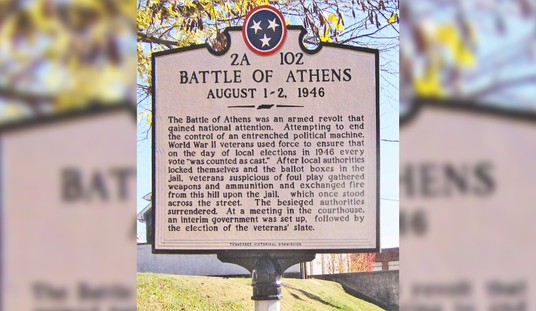Sen. Rand Paul (R-Ky.) walked into D.C. District Court today to file his Fourth Amendment lawsuit against President Obama as the White House tread carefully around the claim.
“This is separate from my legislative function. This is being filed as an individual citizen. But I am pursuing reforms of the NSA,” Paul said outside court. “…I think also some reforms of the NSA can be done internally. But I think the president mistakes that — and this is a common mistake I think he makes — he says we’ll just hire some more lawyers from the White House. We’ll have some of these internal controls. That’s not due process. And they can’t decide on their own what the Fourth Amendment means.”
“Plaintiff and Class Representative Rand Paul is a citizen of the United States and a resident and citizen of Kentucky. Plaintiff Paul has standing to bring this suit because Defendants have, without legitimate legal basis, collected, stored, retained, and periodically searched telephone metadata concerning every domestic or international phone call he made or received since at least May 2006, and Defendants continue to do so,” states the lawsuit. “Plaintiff Paul uses and has used both cellular and/or landline telephones in the United States on a daily basis since May 2006, and he has been a subscriber of both cellular and landline telephone services since May 2006. Such telephone services have included, but not been limited to, Verizon Wireless and AT &T services. Plaintiff has a subjective expectation of privacy from Defendants about his telephone metadata that society views as reasonable.”
The other plaintiff is the nonprofit FreedomWorks, and the defendants are Barack H. Obama, who is “endowed with ultimate authority over each of the federal agencies relevant to this action,” Director of National Intelligence James Clapper, NSA Director Lt. Gen. Keith Alexander, and FBI Director James Comey.
“Defendants’ inconsistent public statements, along with now-public FISC orders, lead Plaintiffs and class members to be concerned that Defendants may have collected or may be collecting, storing, retaining, and searching location information from the telephone metadata,” says the filing, noting that the metadata is only accessed by “authorized personnel with allegedly adequate and appropriate training.”
The NSA has said it only accesses the data for searches associated with suspicions about terrorist connections. “There is no judicial oversight or appeal of such decision prior to NSA acting on the decision,” the lawsuit continues. “The type and quantum of evidence needed to satsify the ‘reasonable articulable suspicion’ threshold to initiate a query by the NSA officials based on a seed is not publicly known.”
“At a minimum, Defendants violate Plaintiffs’ and class members’ Fourth Amendment rights each time they gather, store or search Plaintiffs’ and class members’ telephone metadata.”
The class is defined in the class-action suit as “all persons afforded protections under the Fourth Amendment who made or received a cellular/wireless or terrestrial/landline telephone call that originated and/or terminated in the United States after May 2006.”
“The class described above is so numerous that the joinder of all individual members in one action would be impracticable,” the suit adds, noting there are more than 300 million cellular subscribers and 100 million landline users in the country. “The exact size of the class and the identities of the individual members thereof are ascertainable through Defendant’s records.”
The filing says Paul and FreedomWorks “are adequate representatives of the class because their interests and the interests of class members they seek to represent do not conflict… Plaintiffs will fairly, adequately, and vigorously represent and protect the interests of the members of the class.”
The lawsuit asks the court to declare the Mass Associational Tracking Program to be in violation of the Fourth Amendment, block the administration from conducting the mass surveillance program, order the administration to purge the stored metadata, and order that counsel be given the security clearance for proper discovery about the program.
It was filed by former Virginia Attorney General Ken Cuccinelli and Earl “Trey” Mayfield, former assistant U.S. Attorney for Utah.
“We expect that if you look at several levels of court, this will be a several years long process,” Cuccinelli said. “Here, the government will not have to answer for in excess of two months after service. So that will be the next round. Presumably as they have in all constitutional challenges, they will challenge the case going forward.”
Asked about the lawsuit at today’s press briefing, White House press secretary Jay Carney referred reporters to the Justice Department.
“And while I’m not in a position to speak to a pending lawsuit, what I can say is that in January, the president emphasized that, quote, ‘In an extraordinarily difficult job, one in which actions are second- guessed, success is unreported, and failure can be catastrophic, the men and women of the intelligence community, including the NSA, follow protocols designed to protect the privacy of ordinary people. They are not abusing authorities in order to listen to your phone calls or read your e-mails,'” Carney said.
“And to the extent that the question you asked refers specifically to the Section 215 bulk metadata collection data, as we’ve said previously, we believe that the program as it exists is lawful. We’re not alone. It has been found to be lawful by multiple courts. And it receives oversight from all three branches of government, including the Congress,” Carney continued.
“So, again, I can’t speak to the specific legislation — litigation, but I can speak to what the president’s views are and what the administration’s views are about the program in question.”
After filing his lawsuit, Paul predicted it would be a “historic” action for constitutional rights that finds its way to the Supreme Court.
“There’s a huge and growing swell of protest in this country of people who are outraged that their records would be taken without suspicion, without a judge’s warrant and without individualization,” Paul said.









Join the conversation as a VIP Member